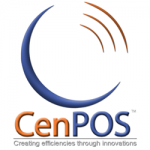 April 23, 2015, Verifone, Inc. PCCharge End of Life Notice
April 23, 2015, Verifone, Inc. PCCharge End of Life Notice
Dear Customer:
Thank you for choosing Verifone as your trusted payment solution provider and for
previously purchasing our PCCharge payment solution. As the payment landscape
evolves and security parameters change, along with the new EMV liability shift, Verifone
is committed to continue delivering powerful new, up-to-date solutions and technologies
to our clients. As these changes occur, Verifone is committed to work alongside our
clients to prevent or minimize any disruptions in your payment processing. As part of
this End-of-Life (“EOL”) notification for PCCharge, you will find important dates to
remember below.
The plan in place is as follows:
Final Order Date: After May 1, 2015, Verifone will no longer take orders for new
PCCharge licenses for new customers. Existing customers may elect to purchase new
MID/TIDs or add on services to existing licenses through September 24, 2015.
Final Shipment Date: After May 7, 2015, Verifone will no longer ship orders for new
PCCharge licenses. Verifone will ship to existing customers electing to purchase new
MID/TIDs or add on services to existing licenses (as set forth above) no later than
October 1, 2015.
End of Development Date: Effective immediately, there will be no new Verifone sponsoredsoftware development with respect to PCCharge.
End of Support Date: Effective October 1, 2015, subject to the following
paragraph, Verifone will no longer provide support for PCCharge. Until October 1,
2015, support will be limited to phone troubleshooting and suggested changes to
configurations or third party components in PCCharge; support will not extend to product
code changes.
Verifone will honor valid support contracts for PCCharge for customers that have
purchased annual support prior to the date of this letter, which support will be provided
through the end of their then current annual support term and will be limited to phone
troubleshooting and suggested changes to configurations or third party components in
PCCharge. However, all such support contracts shall not be renewed and by this letter
Verifone is providing you with notice of non-renewal or termination, as applicable.
We have a team available to work closely with you, and assist you in developing a
migration plan to new products that will support the growth of your business.
Please take advantage of this opportunity to submit any final orders for new MID/TIDs or
add on services by the Final Order Date. Please also pay attention to the Final Shipment
Dates as Verifone will not be able to accept any orders for PCCharge or new MID/TIDs
or add on services that specify a delivery date after the applicable Final Shipment Date.
Thank you for choosing Verifone solutions. We look forward to speaking with you about
your last-time-buy needs and discussing new additions to Verifone’s growing portfolio of
POS products. Should you have any questions, please contact your local sales office or
call 800-725-9264. Thank you for your continued partnership.
Sincerely,
Product Management, PCCharge
###
PCCharge users typically paid a one time fee and they used the software forever. Now, merchants will need to use a payment gateway, and will incur a per transaction fee.
- Option 1: use payment gateway from existing merchant services provider. Pros: it might be free. Cons: The average merchant changes processors every three years so business will be disrupted again later. The gateway directly impacts interchange rate qualification and the provider may have limited tools to help automate qualification.
- Option 2: use independent payment gateway and keep existing merchant services provider. Pros: Get exactly what you need for all sales channels, reducing PCI Compliance burden, increasing efficiency, security and profits. Cons: It might or might not cost more, though expenses are likely to be offset by other benefits, including better interchange rate qualification, which will more than offset the differential. Examples: CenPOS, authorize.net.
Contact 3Dmerchant.com for assistance to replace PCCharge with a payment gateway.


 April 23, 2015, Verifone, Inc. PCCharge End of Life Notice
April 23, 2015, Verifone, Inc. PCCharge End of Life Notice
